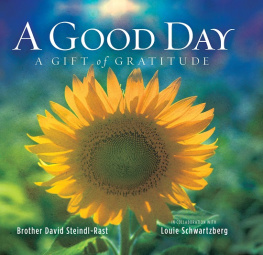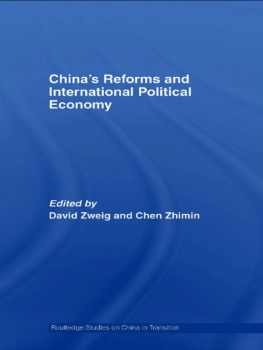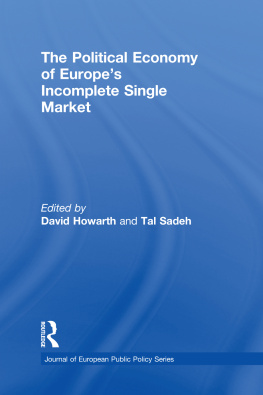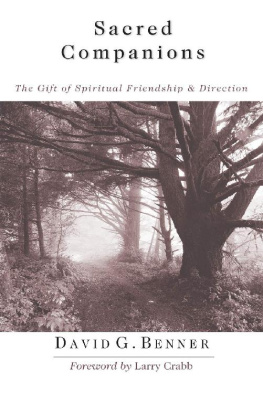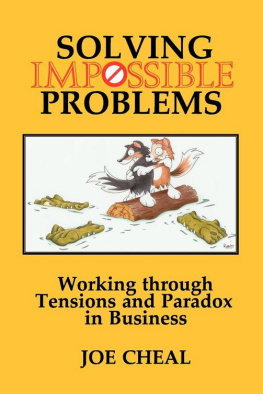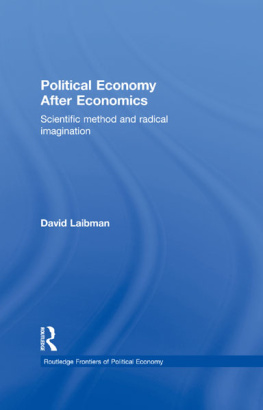ROUTLEDGE LIBRARY EDITIONS:
SOCIAL AND CULTURAL ANTHROPOLOGY
Volume 4
THE GIFT ECONOMY
The Gift Economy
David Cheal
First published in 1988 by Routledge
This edition first published in 2016
by Routledge
2 Park Square, Milton Park, Abingdon, Oxon OX14 4RN
and by Routledge
711 Third Avenue, New York, NY 10017
Routledge is an imprint of the Taylor & Francis Group, an informa business
1988 David Cheal
All rights reserved. No part of this book may be reprinted or reproduced or utilised in any form or by any electronic, mechanical, or other means, now known or hereafter invented, including photocopying and recording, or in any information storage or retrieval system, without permission in writing from the publishers.
Trademark notice : Product or corporate names may be trademarks or registered trademarks, and are used only for identification and explanation without intent to infringe.
British Library Cataloguing in Publication Data
A catalogue record for this book is available from the British Library
ISBN: 978-1-138-92596-0 (Set)
ISBN: 978-1-315-68041-5 (Set) (ebk)
ISBN: 978-1-138-92828-2 (Volume 4) (hbk)
ISBN: 978-1-315-68182-5 (Volume 4) (ebk)
Publishers Note
The publisher has gone to great lengths to ensure the quality of this reprint but points out that some imperfections in the original copies may be apparent.
Disclaimer
The publisher has made every effort to trace copyright holders and would welcome correspondence from those they have been unable to trace.
The Gift Economy
David Cheal
First published in 1988 by
Routledge
11 New Fetter Lane, London EC4P 4EE
Published in the USA by
Routledge
in association with Routledge, Chapman and Hall, Inc.
29 West 35th Street, New York NY 10001
1988 David Cheal
Typeset in Linotron Bembo 10/11pt
by Input Typesetting Ltd, London
Printed in Great Britain at the University Press, Cambridge
All rights reserved. No part of this book may be reprinted or reproduced or utilized in any form or by an electronic, mechanical, or other means, now known or hereafter invented, including photocopying and recording, or in any information storage or retrieval system, without permission in writing from the publishers.
British Library Cataloguing in Publication Data
Cheal, David, 1945-
The gift economy.
1. Man. Social interactions. Role of gifts
1. Title
Library of Congress Cataloging in Publication Data
Cheal, David J.
The gift economy
Bibliography: p.
Includes indexes.
1. Gifts. 2. Ceremonial exchange. I. Title.
GT3040.C48 1988 394 87-37643
ISBN 0-415-00641-4
The author gratefully acknowledges permission to use material from the following sources: From Max Weber, H. H. Gerth and C. Wright-Mills, Oxford University Press; Symbolic Interactionism: Perspective and Method, H. Blumer, Prentice-Hall, Inc., H. Blumer 1969; Prisms, pp. 19-20, T. Adrono (trans. S. and S. Weber), MIT Press, Theodor W. Adorno 1967; Emile Durkheim on Institutional Analysis, p. 234, M. Traugott, University of Chicago Press, 1978; 'The female world of love and ritual', C. Smith-Rosenberg, Signs 1(1), p. 11; 'Reference groups as perspectives', T. Shibutani, American Journal of Sociology 60, pp. 562-9.
For Chris
1948-1983
Contents
Everyone has given a gift at some time, and for many people gift giving is a frequent activity from which they derive a great deal of pleasure. As an economic activity gift giving plays an important part in our lives and in the consumer goods industries. It therefore deserves to be better understood. Of course, gift transactions are not responsible for the great problems of our age, about which we hear so much. Social scientists studying modern societies have tended to pass over the gift economy as a subject for investigation, preferring to address economic issues that have more serious consequences. But in case gift giving appears to be an unserious subject, it is important to realize that in it are reflected many of the important issues of modern times. How people act in their gift transactions is a result of how they think about relations between the sexes and between the generations. Also, gift practices can be powerfully affected by economic and demographic change, and by the hopes and fears of ordinary people faced with personal crises, including the threat of nuclear war. In short, gift giving is as much a part of the struggle for existence in the modern world as is any other form of social behavior. At the very least, studying gift behavior gives us a window through which we can look into people's lives and see for ourselves what it is that moves modern men and women.
In this book a number of case studies of individuals have been presented, beginning in , in which the connections between gift giving and everyday life have been described in some detail. Readers who are most interested in those materials may wish to skip the first two chapters, which deal with matters that are of special interest to the professional social scientist.
For social scientists the most challenging parts of this book are likely to be those that deal with the relative neglect of the gift economy by students of modern society. In addition to the pressures to make research relevant to social problems, there are two additional reasons why the modern gift economy has received little attention. One of them is that contemporary gift giving is normally a private activity, which is often carried out by women. Along with many similar topics it has therefore suffered from the benign neglect of a male-dominated discipline that has been more concerned with public issues and political solutions. In the research reported in these pages it is mostly women's voices that we will hear, because women are more active gift givers than men. The gender distribution of involvement in gift transactions is not coincidental, and its social significance should not be ghettoized within women's studies. Rather, it deserves to be taken seriously by sociology as part of a broader picture of how the modern gift economy works.
Arriving at that conclusion has been easy at the empirical level, but it has not been at all easy at the theoretical level. That brings us on to the third major reason why gift giving has been so little understood (and, I would argue, so often misunderstood) in the social sciences. We have not had an adequate conceptual framework with which to think about gift giving as a type of economic activity in modern society. That does not mean that we have had no theories of gift behavior. In actual fact there has never been any shortage of people willing to theorize about modern gift practices, often in grandiose terms. But there has been a great shortage of research related to theory. Most research on gift giving has been oriented towards data collection (that is, it has been empiricist). On the rare occasions when important theoretical issues have been raised in a research context, sociologists have tended to waver between structural functionalism and exchange theory. The difficulties involved in choosing one or the other approach suggest that neither is adequate to the task. In this book a deliberate effort has been made to integrate theory and research, and we shall move backwards and forwards between them. In the first two chapters we take up preliminary theoretical and methodological issues, drawn from several disciplines, in order to establish the perspective employed here. In those two chapters, and in subsequent chapters, I have tried to show where I think the views of others are wrong, and why I think they have been wrong.





